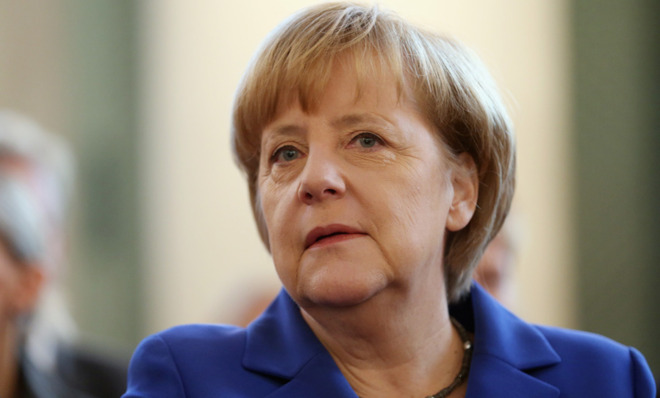The strange rise of Denglisch
And the subsequent pushback against English-German hybrid words

The word "shitstorm" was institutionalized in the latest edition of Duden, the most-respected German-language dictionary, which was published in July. The English profanity had previously spread through the ranks of German society, even working its way into German Chancellor Angela Merkel's vocabulary. She employed the word in a public meeting — Germanized in pronunciation to "shitschturm" — to describe the eurozone crisis.
The English compound word "flashmob" also was given its own listing in the Duden earlier this year. With terms like "flashmob" and the newly adopted "shitstorm," the German language society Verein Deutsche Sprache criticized the German language bible for diluting the language and incorporating too many Anglicisms. The society awarded Duden its "adulterator of the language" title, with the society’s chairman stating, "Whoever suggests the ridiculous and phoney Anglicism soccer as a replacement for Fussball richly deserves this [award]."
In today's globalized world, languages freely borrow from each other, and with German and English stemming from the same family of languages, cross-pollination occurs with particular ease, both in adopting full words into the lexicon and creating hybrids. In fact, a language term exists for this blending of English words into German words, phrases, or sentences: "Denglisch."
The Week
Escape your echo chamber. Get the facts behind the news, plus analysis from multiple perspectives.

Sign up for The Week's Free Newsletters
From our morning news briefing to a weekly Good News Newsletter, get the best of The Week delivered directly to your inbox.
From our morning news briefing to a weekly Good News Newsletter, get the best of The Week delivered directly to your inbox.
"Denglisch" itself is a "Denglisch" word — how meta! — fusing the words Deutsche and English and sandwiching in a "c" for Germanic effect, though "Denglish" is also common spelling. The unofficial sub-language of Denglisch has been evolving for quite some time, though "Denglisch" itself is not an official term and carries a number of meanings. It can refer to the practice of adding a German twist to English words, as the case would be with "babysitten" for "to babysit." It also can allude to the superfluous use of pure English words and phrases in German, or the practice of misappropriating or creating fake English words to add to the German language, such as "showmaster" for television presenter.
There has been plenty of pushback in Germany. In June, the higher-ups at national railway operator Deutsche Bahn issued a guide detailing more than 2,000 English terms employees should refrain from using, instead substituting the original, official German words. The purification push was at the urging of Germany's transport minister, Peter Ramsauer, who has been aggressive in keeping German, well, German. For instance, the handout advised "handzetteln," the official German word for "flyer" or "leaflet," to be used instead of the Denglisch "flyern."
Here are six more Denglisch words that illustrate the different definitions of the term and diffusion of English throughout the German language.
Snackbox: Along with "flyern," "snackbox" was another English-based word commonly seen on the Deutsche Bahn rail system. It was used as the term for children's meals.
A free daily email with the biggest news stories of the day – and the best features from TheWeek.com
Handy: Similar to "showmaster," "handy" is a bastardized English word that takes on its own identity in German. "Handy" is the term for a mobile phone.
Basecap: Once upon a time this word likely was "baseball cap," but through adaption became the shortened, compound "basecap."
Baby: "Das Baby" is the widely used term for a newborn, in lieu of the antiquated "säugling." (English equivalent: "suckling.") And as in English, "baby" also is an affectionate, romantic term.
Cashcow: Like "flashmob" and "shitstorm," "cashcow" is another compound word that wiggled its way into German while retaining its original spelling and meaning.
Leasen: Just as "babysitten" (meaning "to babysit") is given a German touch at the end, "leasen" means "to lease." The true German word is "pachten."
Karina Martinez-Carter is an assistant editor at Map Happy and a freelance journalist based in Buenos Aires, Argentina. Her work has appeared with BBC Capital, BBC Travel, Thrillist and Quartz, among other publications.


